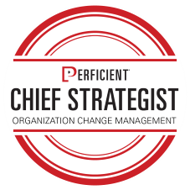Previously, I highlighted stakeholder management in a change management initiative and the benefit that comes with it. This blog will highlight how proper stakeholder assessments can provide efficient planning and strategies.
 At least once a week, I open my spam folder to find hundreds of messages. Sometimes I’ll briefly scan them before deleting, and other times, I’ll simply “delete all” in the interest of time. The important messages from known senders are in my inbox, and most of what ends up in my spam box is irrelevant to me anyway, right?
At least once a week, I open my spam folder to find hundreds of messages. Sometimes I’ll briefly scan them before deleting, and other times, I’ll simply “delete all” in the interest of time. The important messages from known senders are in my inbox, and most of what ends up in my spam box is irrelevant to me anyway, right?
That’s the express risk of a poor, one-size-fits- all communication strategy for a project. It seems like many of projects these days will, in fact, leverage a “project mailbox” for related communications. This is good. However, this box is not known to most of users, and so messages runs the risk of hitting spam automatically. Moreover, if initial emails aren’t compelling and don’t capture the audience’s attention they run the risk of being put into the spam folder manually – literally or figuratively.
We had a client in the entertainment industry that announced at the project kickoff, “Email is our preferred, and only, communication channel. But, no one reads the emails.” It’s safe to say that, while I may have been surprised by the first comment, I wasn’t at all by the second. So, how do you fix this? How do you get people to read your emails? How do you make sure relevant content is received by your target audiences? After all, you have important information to communicate!
First, you can’t rely on email as the sole communication channel. Marketing experts for years have preached that if you want a message to land and stick, you must say it at least seven different times over at least three different channels. Given the diversity of audiences today, from Baby Boomers to Millennials, it’s reasonable to suggest those numbers have increased from eight to nine times over at least four to five channels, and one must be some form of social media.
Yes, you should continue to use email, but you should also leverage face-to-face communications and solutions like Yammer and Teams. By the way, don’t forget posters – people still love them! One of my favorite tactics came from a client that wanted signs posted to the back of stall doors in the bathrooms! Whatever it takes!

Again, the messages have to be relevant. You don’t get a second chance to make a first impression, and that’s expressly true of project communications. It’s critical to send the right message to the right audience at the right time. This means that your plan cannot be one-size-fits- all. This is where the effective stakeholder assessment comes in. From the assessment, you understand not only who the stakeholders are, but learn what is important to them. You learn what they are concerned about and what areas of resistance might be. You’ll understand what communication channels work best for their team. The information gathered from stakeholders feeds directly into the communications plan. When you send on-point messages to stakeholders that address concerns and topics of interest, you have their attention. They read your messages. They’ll be prepared when the time comes.
One of the criticisms I hear frequently is that change managers create a lot of pretty deliverables but don’t do anything with them, and one of the most frequent culprits is the stakeholder analysis. However, if done correctly (and keep in mind, it should be iterated periodically), this information is absolutely critical to creating an effective communication plan that grabs and holds attention, while preparing users for events to come.
To learn more about the key concepts of change management, stakeholder assessments and how to overcome challenges to achieve success, you can click here or download the guide below.
